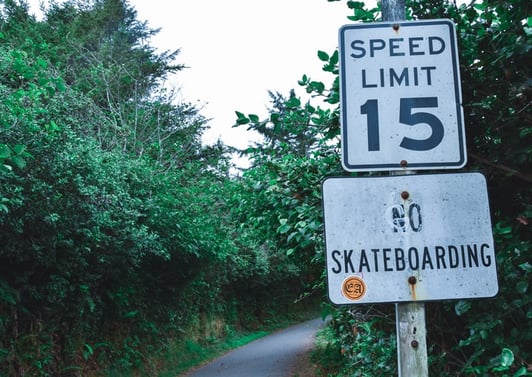A new speed limit for HGVs—Heavy Goods Vehicles over 7.5 tonnes—has just come into effect from April 6th in England and Wales.
The new speed limits, active on single carriageway roads, has actually increased from 40 mph to 50 mph and on dual carriageways the limit has also increased, from 50 mph to 60 mph.
The decision was taken by the government with a view to boosting the economy—it has been predicted that implementing these measures will stimulate economic growth by £11 million (around €15 million).
According to transport minister Claire Perry, the new limits are better suited to the characteristics of modern HGVs and will help in using carriageways more efficiently; reducing the speed differential between HGVs’ and other road users.
However, other parties argue the decision is “short-sighted” and in
no way ideal from a safety perspective. This is precisely what Gary Rae, campaigns manager for road-safety charity Brake, is arguing—according to Rae, the relationship between
speed and casualties is well-proven and higher speeds will only
increase risks.
The news has been received with mixed reactions. Haulage companies are generally supportive; they tend to think the speed limit increase will not have a negative effect or be directly responsible for more accidents, on the contrary, drivers will be less frustrated by having to respect out-dated speed restrictions and, as a consequence, less prone to driving impetuously.
RAC spokesman Simon Williams stated that a similar measure that had been implemented on Danish roads actually led to a reduction in accidents on single carriageway rural roads—contradicting the beliefs of safety campaigners—and might lead to a more thorough investigation.
The UK’s FTA (Freight Transport Association) supported the measure as well, and Malcolm Bingham, head of Road Network Management Policy, stated that the measure will improve on safety as the 20 mph speed difference between cars and trucks often lead to hasty, risky overtaking resulting in casualties.




